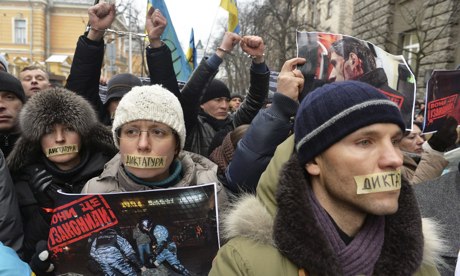By Darrin Simmons
Impunity Watch Reporter, Middle East
TEHRAN, Iran-The White House issued a statement on Monday saying that the U.S. will start easing economic sanctions on Iran as soon as Tehran begins closing tis most sensitive nuclear work. Jay Carney, White House spokesman, added that Washington will continue to aggressively enforce sanctions that remain in effect.

“These actions represent the first time in nearly a decade that Iran has verifiably enacted measures to halt progress on its nuclear program and roll it back in key respects,” Carney said.
Carney continued saying, “Iran has also begun to provide the International Atomic Energy Agency (IAEA) with increased transparency into the Iranian nuclear program, through more frequent and intrusive inspections and the expanded provision of information to the IAEA. Taken together, these concrete actions represent an important step forward.”
The United Nations nuclear agency confirmed that the higher-level uranium enrichment at a facility located in central Iran has ceased. As such, the European Union also announced its suspension of sanctions.
The deal that went into effect on Monday was discussed by EU foreign policy Chief Catherine Ashton. “This is an important day in our pursuit of ensuring that Iran has an exclusively peaceful nuclear program,” Ashton added.
However, Israeli Prime Minister Benjamin Netanyahu said the agreement would not stop Iran from “realizing its intention to develop nuclear weapons.”
Ali Akbar Salehi, head of Iran’s Atomic Energy Organization said, “The sanctions iceberg against Iran is melting.” The IAEA confirmed that Iran had ceased enriching uranium above 5% and also begun diluting its stockpile of uranium enriched to 20%.
Providing a note of caution, former IAEA deputy director Olli Heinonen said that if Iran decides to default on the deal, it would only need two to three weeks to produce sufficient highly enriched uranium for a nuclear weapon.
The sanctions will be suspended for six months allowing Iran to resume export of its petrochemicals. Sanctions affecting the trading in gold, other precious metals and the car industry will also be lifted.
The payoff to Iran will result in an influx of billions of dollars over the next six months into the Islamic republic’s unstable economy.
For more information, please see the following:
ABC News-US to Begin Easing Economic Sanctions on Iran-20 January 2014
Al Jazeera-EU and US ease some sanctions against Iran-20 January 2014
BBC News-Iran nuclear: Curbs on uranium enrichment begin-20 January 2014
York Dispatch-U.S., EU lift some sanctions on Iran-20 January 2014

